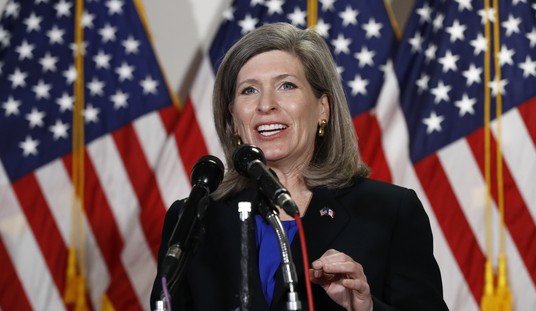Thanks to a historic humiliation of its officiating in this year’s NFC championship game, NFL owners caved on a key principle that has guided instant-replay challenges since their inception. In league meetings last night, owners voted 31-1 to allow coaches and the booth replay official to challenge rulings and non-rulings on a penalty — pass interference. The only team holding out against the one-season change was the Cleveland Browns:
The NFL owners voted on Tuesday evening to approve a rule proposal that allows for offensive and defensive pass interference, including non-calls, to be subject to review.
Coaches can challenge those calls in the first 28 minutes of each half. In the final two minutes of each half, those calls will be subject to a booth review.
This rule change is only for the 2019 season. …
This decision comes a day after New Orleans Saints coach Sean Payton said that the competition committee agreed to an amended rule-change proposal (6B), in which coaches would be allowed to challenge offensive and defensive pass interference even if there was no flag on the play. The rule change that passed on Tuesday night is considered 6C.
For those who don’t remember — a set of people which doesn’t include anyone in the vicinity of New Orleans — let’s recall how we got here. At a critical moment in the Rams-Saints contest, Drew Brees threw a pass to a wide receiver who got hit about three hours before the ball arrived. Immediately afterward, Saints owner Gayle Benson demanded this rule change to prevent such a debacle in the future:
Initially, the rule change was seen as a “non-starter” in league meetings. Penalties were considered too subjective for review, but Saints head coach Sean Payton managed to get unanimous support for the change among all of his colleagues:
The competition committee initially proposed a modified expansion that would have allowed pass interference penalties to be reviewed but stopped short of allowing reviews of non-calls. According to chairman Rich McKay, four of the eight committee members were initially opposed to allowing non-calls to be reviewed. In essence, they did not want to give anyone other than the officials on the field the authority to call penalties.
McKay would not name those members, but said they changed their minds Tuesday prior to the vote.
“Ultimately,” commissioner Roger Goodell said, “people compromised on long-held views because they want to get the play right.”
Payton had galvanized all 32 coaches in support of some form of change this week. Many expressed interest in using a replay official already in the press box to alert the referee to an obvious mistake. Ultimately, however, McKay said there was more support for maintaining the current structure of replay and simply adding pass interference to the list of reviewable plays.
It seems amazing that coaches would have argued against reviewing non-calls. A non-call was the catalyzing event! Did they believe at some point that reviewing only called penalties would somehow resolve the fan anger and damaged credibility of the officiating corps after the playoffs? There’s more of an argument for reviewing a missed call when it’s obvious than reviewing a called PI, which might be open to more interpretation.
It’s a smart move to keep this within the current replay structure too, although that could use another look. Booth officials can now step in when calls get obviously missed or are obviously wrong at any time, but this keeps the coaches from needlessly slowing down games and forces them to focus on critical moments. With that said, though, it’s always seemed like a contradiction to limit coaches to two challenges in a half, with a third if the first two pan out. Why not just limit coaches to two bad challenges a game and cut them off after the second one? If the point is to get calls correct, shouldn’t they have that option until they play themselves out of it? Yes, it might make games a little longer — but that would be a function of the quality of officiating rather than the coaches. Which is maybe why the league won’t do it.
Next season will be a test, supposedly, of this system. After what happened in New Orleans, though, can the league retreat on this option? If they want to “get the play right,” no, no they can’t.








Join the conversation as a VIP Member